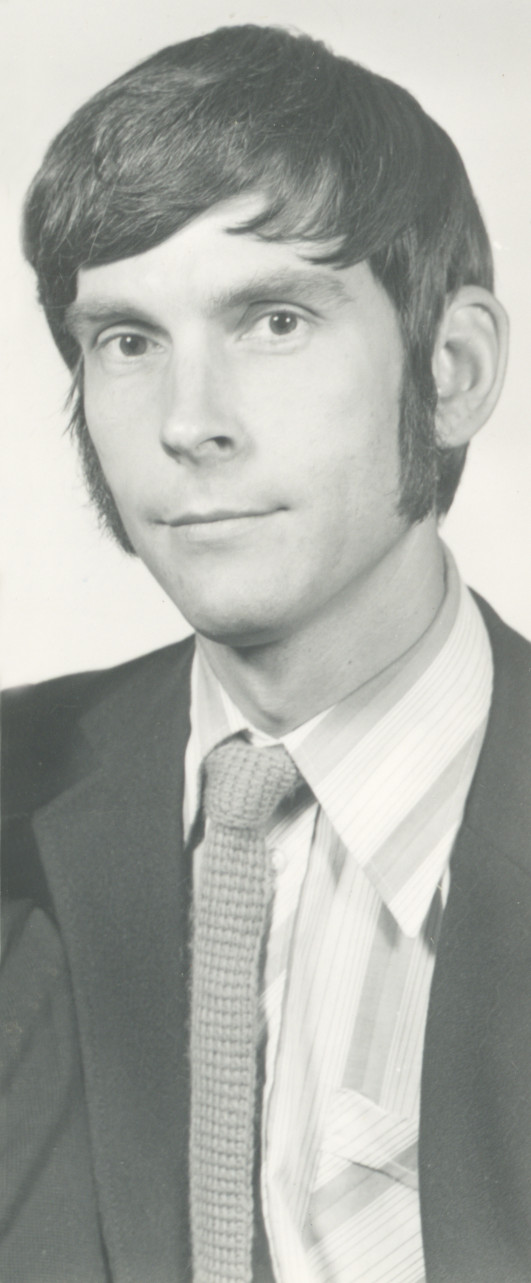
Aarand Roos
Aarand Roos (28 May 1940 – 9 August 2020) was a prose writer, poet, linguist and diplomat.
Roos was born in Tartu, in 1944 left Estonia for Sweden with his parents. He attended schools in Sundbyberg and Lund and the Estonian gymnasium in Stockholm. He studied Finno-Ugric and Turkic languages and phonetics at Lund University and the universities of Uppsala, Helsinki, Jyväskyla and Szeged. Cand. phil. from Lund University 1969, dr. phil. nat. 1980. Roos worked in several positions, e.g., at the Estonian Service of the Voice of America in Washington, as editor of Estonian-language broadcasts of Radio Sweden and of the sports section of Eesti Päevaleht, an Estonian-language newspaper in Sweden. He also worked as a lecturer at Lund University and, from 1982–1995, as consul of the Republic of Estonia in New York. After returning to Estonia in 1996, he worked as a translator at the Ministry of Foreign Affairs. He was a member of the Representation of Swedish Estonians from 1966–1970 and of the Estonians’ Scientific Society in Sweden. He has been awarded the Order of the National Coat of Arms, Class 4 (1998). Aarand Roos died in Tallinn.
His debut novel Lehmatapja (‘Cow Killer’, 1964), which parodies a criminal novel, has been called the first Estonian pop novel. It stands out with its novelty of language and absurd humour. Tallermaa (‘Battleground’, 1968) lies on the border between genres – prose and radio play. It destroys the illusion of fictional reality, communicating directly with the reader. The short story collection Esto-Atlantis (1974) searches for the homeland lost at different times, also taking a (witty) look at emigre Estonians’ mentality. The stories are united into a whole by the protagonist who acts in different historical periods. Like Roos’ prose, his poetry is also characterised by fresh and playful usage of the language where neologisms are applied, e.g., Oma koli, oma voli (‘Our Own Stuff, Our Authority’, 1969) and Rändamaie (‘Going to Travel’, 1982). In his creation, Christian values and principled fidelity to Estonian ideals are entwined with modernist devices.
He has published a study on Estonians living in Turkey, Jumalaga, Kars ja Erzurum. Türgi eestlaste elu- ja ajalugu (‘Farewell Kars and Erzurum. Life and History of Turkish Estonians’, 1975) and a collection of sermons, Usku peab olema (‘One Must Have Faith’, 1993). The speeches delivered as consul have been collected into Konsuli kõned 1982–1991 (‘Consul’s Speeches’, 1993) and evangelical stories into Issanda loomaaed ja teisi legende (‘The Lord’s Zoo and Other Legends’, 1999). His lively interest in the history of Estonian sports has found expression in several publications.
A. K. (Translated by I. A.)
Books in Estonian
Novels
Lehmatapja. Stockholm: Vaba Eesti, 1964, 118 lk
Short prose
Esto-Atlantis: novelle. Stockholm: Välis-Eesti & EMP, 1974, 292 lk
Poetry
Oma koli, oma voli. Lund: A. Roos, 1969, 59 lk [2. tr: 1976]
Rändamaie: teine kogu luuletusi. Lund, 1982, 100 lk
Saar, saare, saart: ood Koipsi saarele: riimitud haikud. Tallinn: Faatum, 2003, 63 lk
Haikumaa: neljas kogu luuletusi. Tallinn: Eesti Raamat, 2018, 93 lk
Travelogues
Tallermaa: reisikirjeldus tuhandete põldude maalt. Stockholm: Vaba Eesti, 1968, 141 lk
Varia
Jumalaga, Kars ja Erzurum: [ülevaade Türgis asuva Uus-Estonia asunduse ajaloost]. Rooma: Maarjamaa, 1975, 175 lk. [Järgmised trükid: 1976, 1992]
Juutide kuningas Tallinnas. Tallinn: Logos, 1992, 95 lk
Konsuli kõned 1982-1991. Tallinn: S. Roos, 1993, 155 lk
Usku peab olema: jutlustekogu. Tallinn: Eesti Kristlik Ministri, 1993, 353 lk
Issanda loomaaed ja teisi legende. Tallinn: A. Roos, 1999, 220 lk
Väikesaar eesti kirjanduses: essee. Tallinn: A. Roos, 2008, 29 lk
History of sports
Eesti kergejõustiku pool sajandit paguluses. Tallinn: A. Roos, 1998, 167 lk
Ära sa tule siia meistritiitlit kaitsma!: Aleksander Kreegi lugu. Haapsalu: A. Roos, 2004, 94 lk
Staadionilt statistikasse. Tartu: Eesti Spordimuuseum, Eesti Spordiajaloo Selts, 2009, 176 lk
Areenilt arhiivi. Tartu: Eesti Spordimuuseum, Eesti Spordiajaloo Selts, 2013, 189 lk



